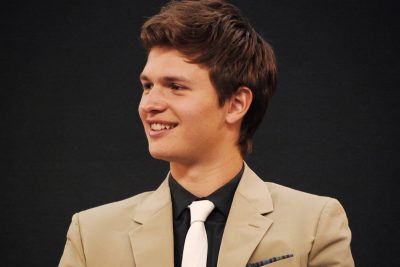If you look up the phrase, “the book is way better,” on Google, the first site that will pop up is a goodreads list voted upon by 18,505 people and consisting of 1,498 novels whose on-screen adaptations just couldn’t live up to the source material. “The Goldfinch” is just another one of those adaptations.

Directed by John Crowley, “The Goldfinch,” based off of the Pulitzer Prize-winning 2013 novel by Donna Tartt, details the life of Theo Decker (Ansel Elgort) and his descent into crime after his mother is killed in a bombing at an art gallery. There are moments in the film that work very well on their own, but nothing quite fits together.
It is clear that Crowley had high ambitions when making this film. Spanning two hours and 29 minutes and with a plot that spans multiple generations, in the right hands “The Goldfinch” could have been an emotional epic.
Although the film fails to live up to the source material, several actors in the film put on good performances. Oakes Fegley, who plays a younger version of Theo, is a standout in the cast. Child actors more often than not tend to bring down a film, but Fegley’s portrayal of Theo is both moving and highly entertaining. The film’s best scenes revolve around him.
Whether he is dealing with an abusive father, struggling with the loss of his mother or creating new friendships, young Theo’s struggles feel very realistic and will likely strike a chord with viewers.
Elgort is far less convincing as the adult version of the character and scenes with him tend to drag. This is a major issue, as the emotional climax of the film hinges on his performance and, as a result, flops at the finish line.
The film also features prominent actors such as Nicole Kidman, Finn Wolfhard and Jeffery Wright, but their performances are mostly wasted in this slog of a movie.
“The Goldfinch’s” biggest problem is by far its runtime.
Many great films, such as “The Godfather” and “The Wolf of Wall Street,” come close to or exceed the three-hour mark. These movies justify their length with expert pacing and engaging performances and therefore don’t feel nearly as long as they are.
This movie, on the other hand, does not have nearly enough substance to justify its length. This story would have been much better served with a two hour run time, or less. It is difficult to remain invested in the story and its characters when the events happening on screen feel tedious and drag on for such a long period of time.
What makes this problem worse is that the film’s conclusion does not feel nearly impactful or memorable enough to justify such a drawn-out journey. There is so much build-up, only for it to end with a whimper rather than a bang.
Another major flaw is the film’s strange tonal shifts.
The script cannot decide what kind of genre it wants to be and frequently switches between a coming-of-age story and an ill-fated attempt at a crime drama.
Scenes where Theo discusses artwork or deals with family problems start off strong but quickly grow to be repetitive, especially when the film transitions to the adult stages of his life. The moments that work emerge from the story’s coming-of-age elements. The pseudo-crime drama it presents is dull and lifeless, with characters who are far too one-dimensional to grow invested in.
For being such a long movie, the audience is not given enough information about Theo’s criminal activities to fully understand him. This causes scenes from later in his life to lack any sort of tension or weight.
With such a confused, bland and bloated script, it is no wonder this film has received negative buzz and little attention at the box office.
It is hard to imagine what sort of target audience the film is aiming for. It dips its toes into many different genres and tries its hand at various themes, but does not have the courage to fully dive into any of them.
The few bright spots in “The Goldfinch” are hindered by uneven pacing and a director who allowed many scenes to go on for far too long. It is a disappointing waste of talent from a highly talented cast and a rich source material.



















































































































